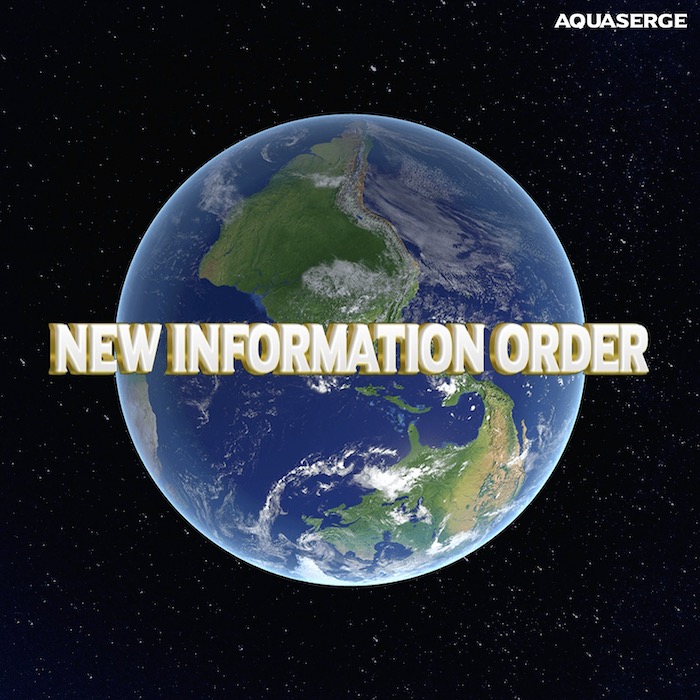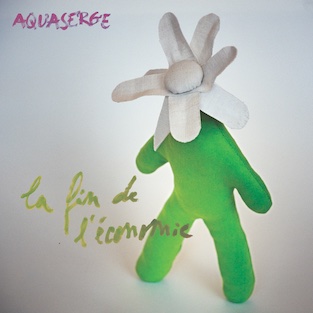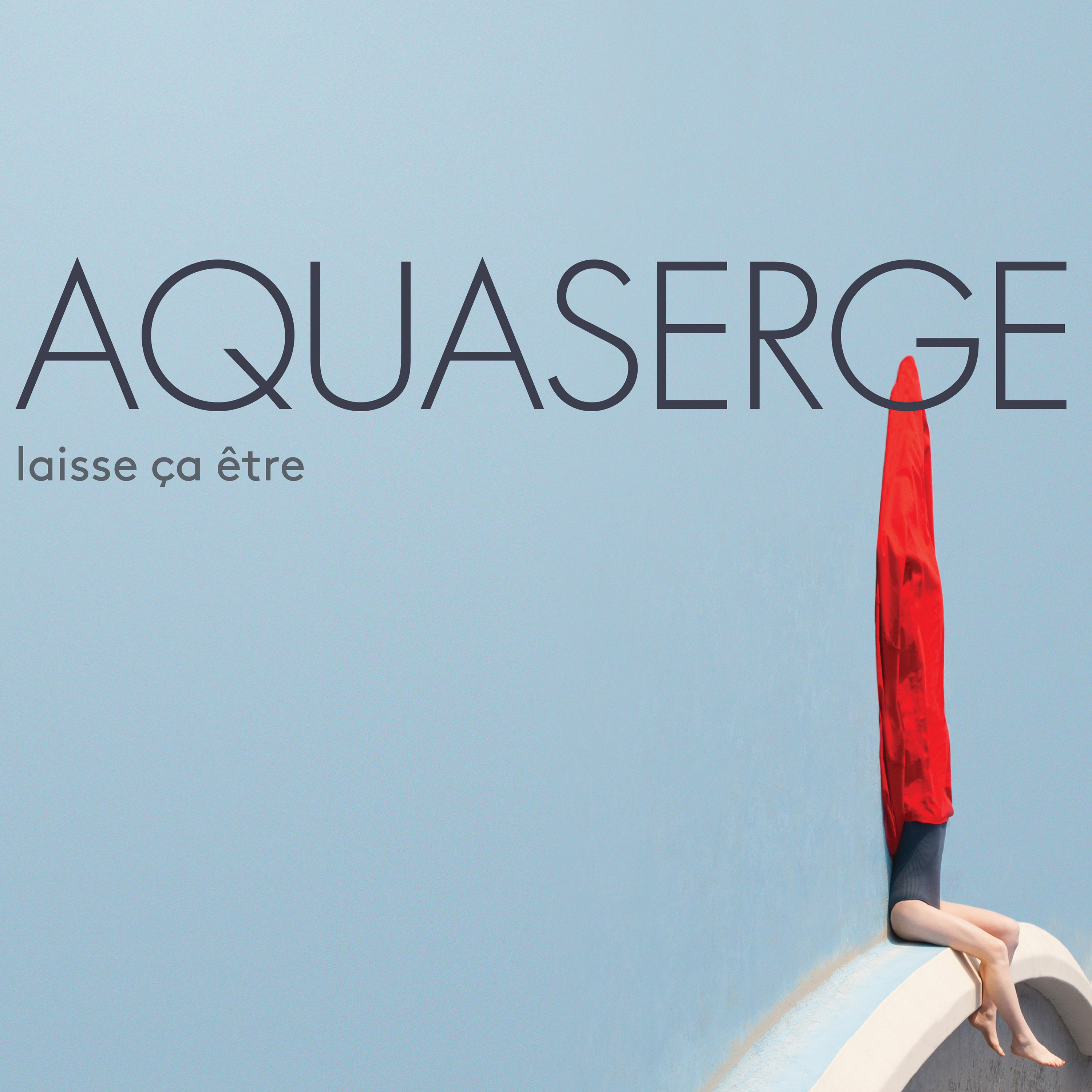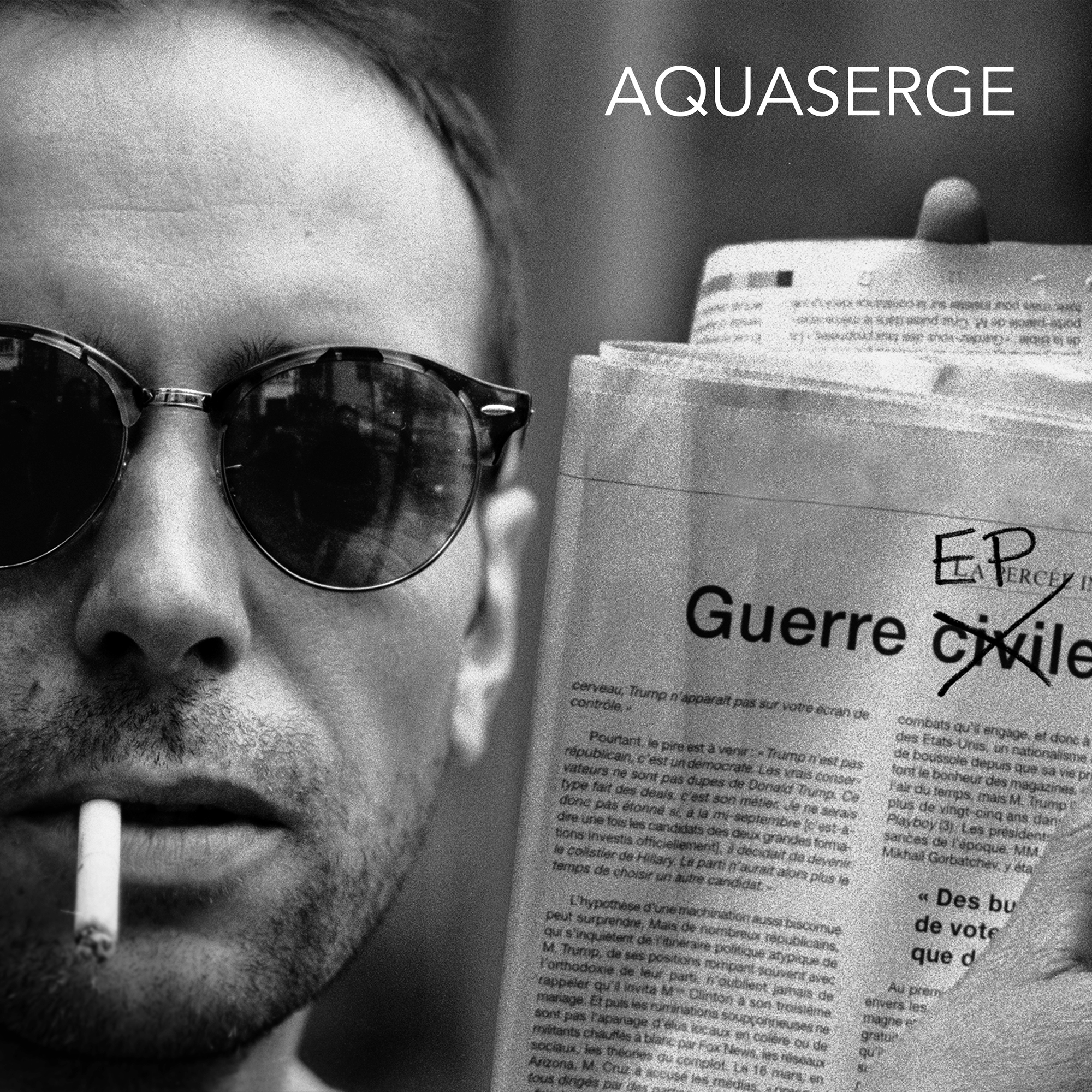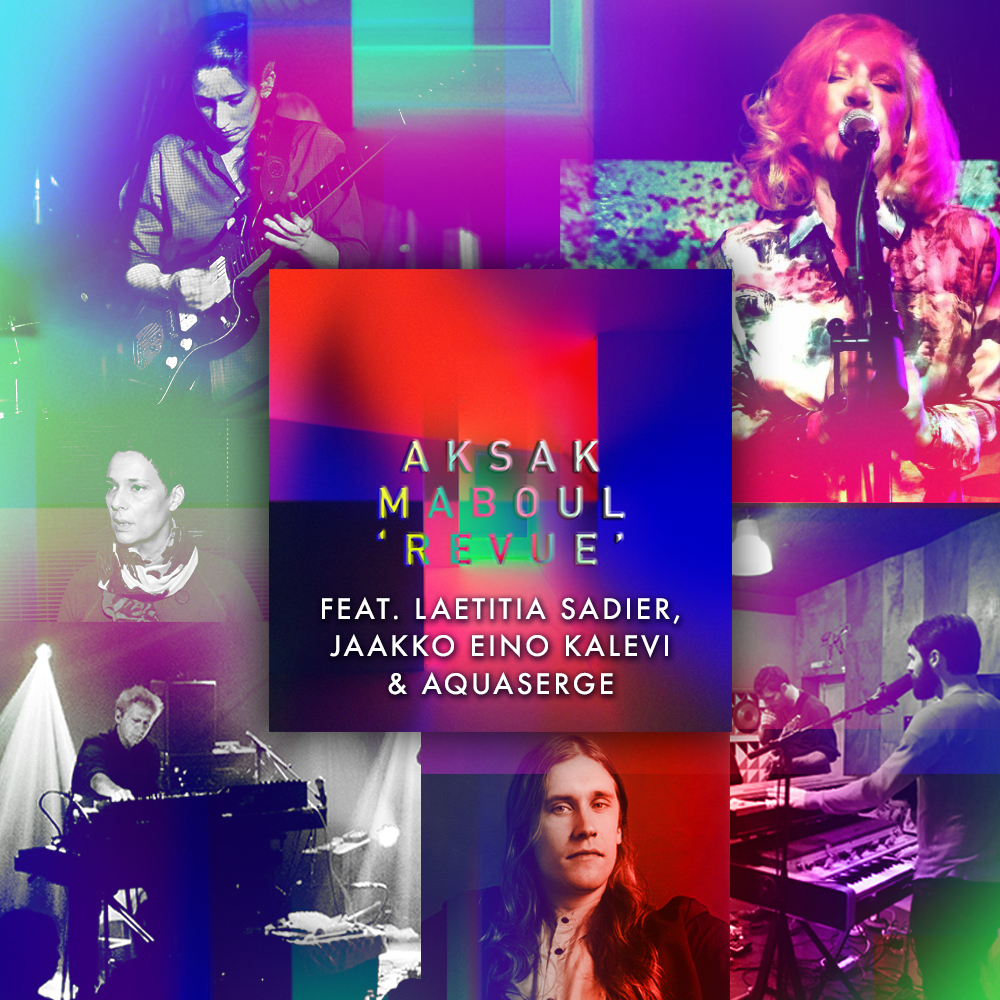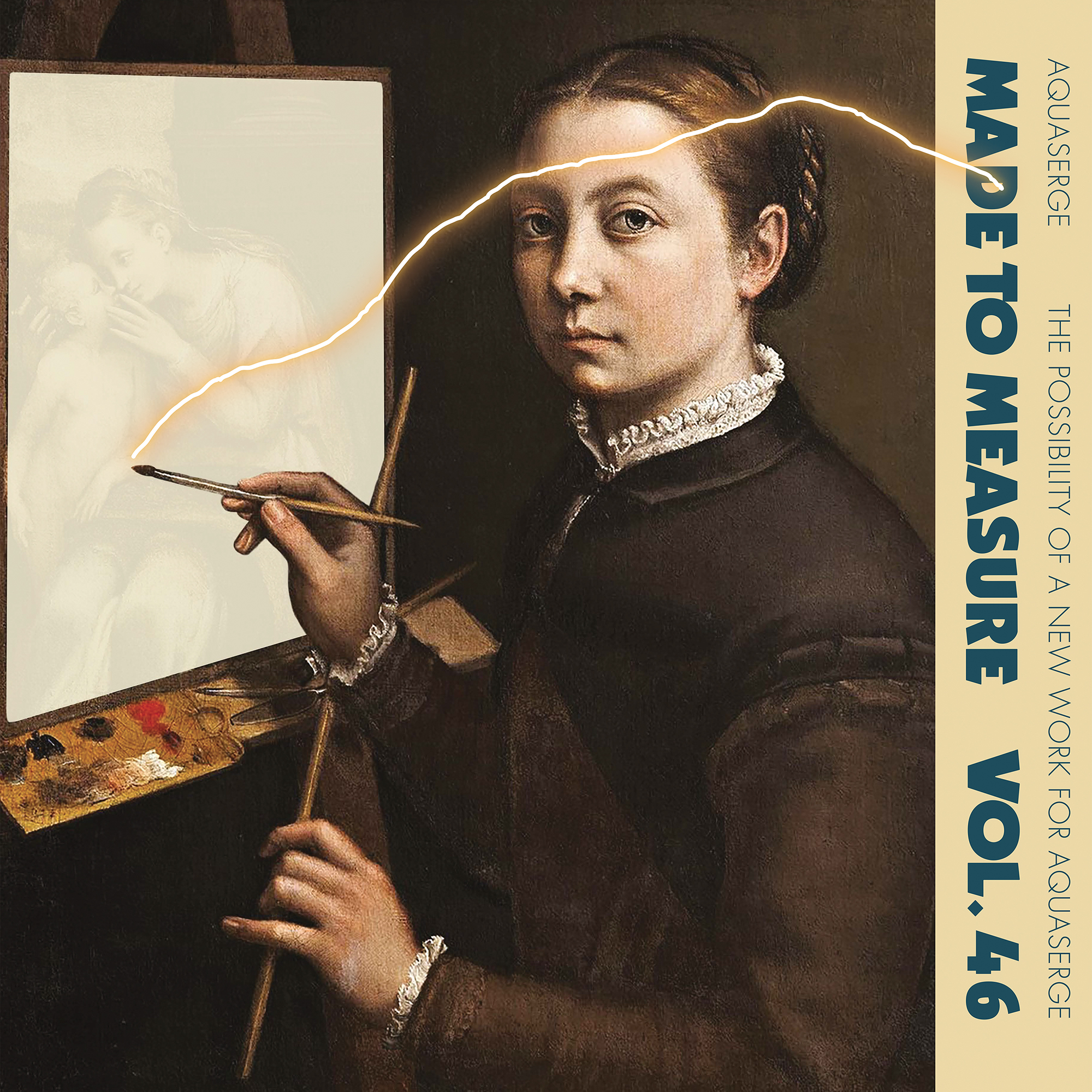
Always ready to expand their scope and blur the genre borders, the inventive, revered French avant-rock band AQUASERGE have decided to tackle the field of contemporary classical music from the mid-20th century, in a special project which pays tribute to four major atypical figures: Giacinto Scelsi (1905-1988), György Ligeti (1923-2006), Edgard Varèse (1883-1965) and Morton Feldman (1926-1987).
Drawing inspiration from these composers’ respective approaches in terms of dynamics, sonic textures and duration, more specifically from Scelsi’s exploration of timbres and oscillations, Ligeti’s moving clusters, Varèse’s melodic cubism and Feldman-type graphic scores, Aquaserge have approached this album with a mixture of raw intuition and strict method, and have created pieces for a hybrid, semi-classical and semi-rock expanded 9-piece line-up.
The album revolves around three slow, extended, spacious pieces, in which the instruments’ timbres are merging into one another to create a fascinating sonic matter, both immobile and moving, like in certain works by Ligeti and Scelsi. By contrast, Aquaserge’s tributes to Varèse and Feldman include explosive moments, as well as segments of wild improv. These original Aquaserge compositions are completed by interpretations of three rare songs written by Edgard Varèse (on a poem by Verlaine) and Morton Feldman (on a Rilke text), which remind us of Aquaserge’s taste for melodies.
These pieces and some others will be performed as part of a musical and theatrical show entitled The Possibility of a New Work for Aquaserge - Lost in a Guitar Case.
The album is being released as part of Made To Measure, Crammed Discs’ legendary composers’ series, which is being reactivated in 2021.
Pieces
Un grand sommeil noir (1906)
Written when he was in his early twenties, this is the oldest known composition by Edgard Varèse, which sets a poem by Paul Verlaine to music. It displays a little-known aspect of his work, tonal and post-romantic, influenced by his then-contemporaries Debussy, Ravel and Satie.
1768° (À Edgar Varèse)
A tribute to the melodic genius of the great French composer, to his obsessive lines which often revolve around close intervals (minor seconds), with constantly shifting range. The piece also contains some characteristic Aquaserge elements: frantic rhythms section parts, and sudden changes.
Hommage à Giacinto Scelsi
Scelsi was fascinated by the tridimensional aspect of sound which, according to his view, is “spherical”. Aquaserge tried to come close to this state of mind, to this meditation on pure sound. This piece is performed with a graphic score, and follows some of Scelsi’s ideas, by playing with timbres and with interferences (“beat”) between very close frequencies.
Only (1947)
Set to a poem by Rilke, this is one of the very first compositions by Morton Feldman (aged 21 at the time), and one of his rare pieces for solo voice. Aquaserge created two different versions for the album
Comme des carrés de Feldman
A free, joyful and noisy improv, structured by a graphic score inspired by those invented by Morton Feldman, who was one of the first composers to use any.
Nuit Terrestre (À György Ligeti)
The challenge was to use a variety of instruments with heterogeneous timbres, and to make them sound like a single, large instrument, like an organ or a choir, by imperceptibly fusing the timbres, with Ligeti’s following description in mind: “Upon the still surface of a body of water, we see the reflection of an image, and then ripples disturb the surface of the water, the image changes and disappears. Very gradually, the water's surface stills itself, upon which then appears a new image, different."
Nuit Altérée (À György Ligeti)
According to Aquaserge, this piece is “a vertical approach to our homage to Ligeti. As if one was cutting through or freeze-framing the surface of the water and was unfolding the results. In a way, it’s like a ‘spectral’ approach of the previous, horizontal piece”.
Line-up
WIth Aquaserge, the band’s line-up notoriously fluctuates as much as the music does. For this specific projet -the album and the live performances- Aquaserge have expanded to a nonet by bringing in young percussionist Camille Emaille (who comes from the contemporary classical world, but is also active in improv and had worked with the likes of Fred Frith, Peter Brötzmann and Roscoe Mitchell), flute player Marina Tantanozi, (who also has a contempo classical background, and works with electronics, improv and experimental music), and saxophone players Robin Fincker and Olivier Kelchtermans, who have often been performing with the band in recent years, on special occasions (such as the Déjà-Vu? live album, for example). The band’s regular basic quintet consists of Audrey Ginestet (vocals, bass), Benjamin Glibert (guitar, keys), Julien Gasc (vocals, synth), Manon Glibert (clarinets) and Julien Chamla (drums, percussion).
Title
One day, a concert promoter asked Morton Feldman: “Do you have a new piece to add to the programme?” “Well, there would be the possibility of a new piece for guitar.” The composer’s reply became, word for word, the title of the piece: “The Possibility of a New Work for Electric Guitar” (1966). Some time later, the only manuscript copy of the piece was stolen in a guitar case, along with the instrument on which it had been performed.. The score was never recovered, but a new one was made in 2013, based on a transcription from a recording of one of the original concerts. What strikes us in this story is that it encapsulates various pathways which can be taken by the transmission of a musical idea: from the act of speaking to writing and vice versa, from what you hear, what you think you hear, what is said, what you think is said, to how to write what you hear, how to transmit what you think you read, and so on. Music sometimes emerges from such detours, such poetic misunderstandings. That much can be said of the modest, intuitive tributes contained in this album — Aquaserge
Press quotes on previous albums
Aquaserge's sound is global, cosmic and genuinely kaleidoscopic... densely packed with ideas, mathematically precise, boldly anarchic about ignoring borders and boundaries of every kind, and dazzling with joyful weirdness. (The Wire, UK)
A musical galaxy in perpetual movement. One of the most exciting exploration labs in the French scene. A genius album.
(Les Inrockuptibles, FR)
One of the most daring and accomplished albums we've heard in many years. (France Culture, FR)
Like a cratedigger’s fantasy band, Aquaserge mine a colourful seam of psych-rock, jazz and Afrobeat... recalls the sophisticated middle ground where Tortoise and Stereolab once met. (Uncut, UK)
An absolute joy. One of this year's most original and enjoyable records. (Shindig, UK)
A journey full of delicious quirks. (The Line of Best Fit, UK)
A fine introduction to a wonderful and experimental band. (Monocle, UK)
The record bridges the long history of psych, sitting atop a prism where Stereolab, Os Mutantes, and Hot Rats intersect. But beyond any such forebears, the album has its own thing going on. (Tiny Mix Tapes, US)
[Like] Van Dyke Parks arranging a Soft Machine album… playful, seductive, and joyous (All Music Guide, US)
A real gem… experimenting without any stylistic pressures… an iconoclastic journey (El Pais, ES)









